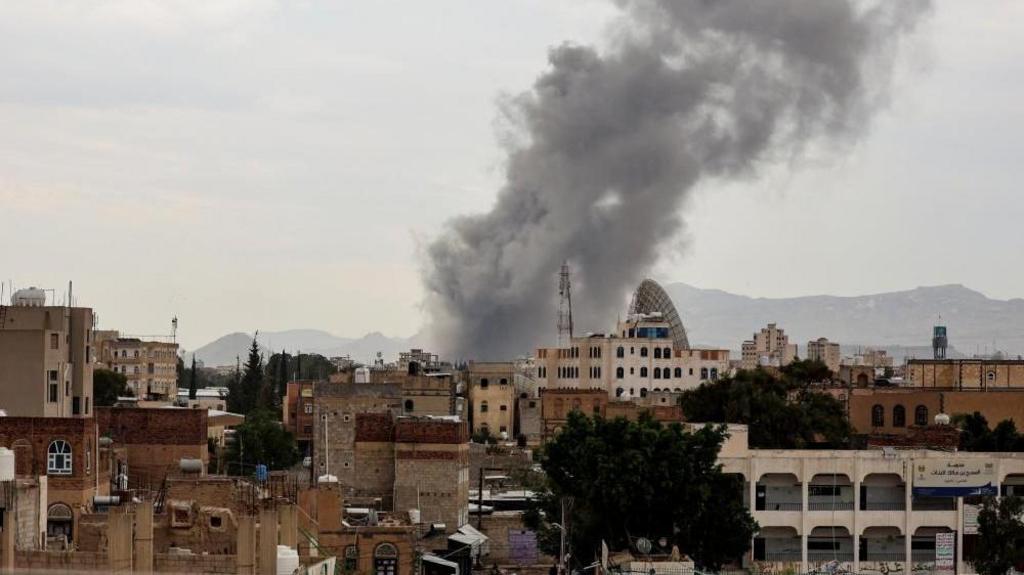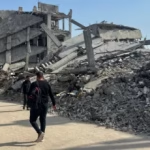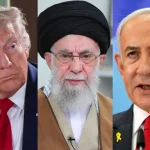The Middle East, already a region gripped by political volatility and longstanding rivalries, has once again been thrust into the international spotlight after Israel launched deadly airstrikes in Yemen just one day after its controversial bombing in Doha, Qatar.
- The Context of Israel’s Expanding Military Campaign
- Why Yemen? Strategic Motives Behind the Strikes
- The Humanitarian Cost in Yemen
- Global Reactions to Israel’s Actions
- The Domino Effect on Regional Stability
- Expert Analysis on Israel’s Military Calculations
- Historical Precedents and Lessons
- The Role of the United States and Other Allies
- Potential Paths Forward
- FAQs
- Why did Israel launch airstrikes in Yemen?
- How many people were affected by the strikes?
- Why did Israel strike Doha before Yemen?
- What is the international community’s reaction?
- Could this escalation lead to a regional war?
- What role does Yemen play in global trade?
- Conclusion
The rapid succession of military actions has stunned global leaders and raised urgent questions about Israel’s strategy, its widening sphere of confrontation, and the broader implications for the stability of the region. While Israel has long maintained a doctrine of preemptive strikes against perceived threats, the escalation into Yemen and Qatar signals a dramatic expansion of its operational reach.
For decades, Yemen has been a battleground for proxy wars, with Saudi Arabia, Iran, and the United Arab Emirates (UAE) shaping the conflict from the sidelines. Now, Israel’s direct involvement has shifted the dynamics, intertwining its security objectives with Yemen’s already fragile humanitarian situation.
According to initial reports from Yemeni officials, the airstrikes left dozens dead and injured, with civilian casualties mounting rapidly as urban centers bore the brunt of the attacks. The timing—coming so soon after the bombing in Doha—has fueled speculation that Israel is broadening its campaign to target Iranian-backed networks across the region.
The following analysis explores the reasons behind Israel’s actions, the geopolitical context driving its military decisions, the human cost of such strikes, and how the international community is reacting to this dangerous escalation.
The Context of Israel’s Expanding Military Campaign
Israel’s decision to strike Yemen is not an isolated event. It is part of a larger regional chessboard where alliances and rivalries are increasingly intersecting. Israel has long viewed Iran as its principal adversary, accusing Tehran of financing and arming groups such as Hamas, Hezbollah, and Yemen’s Houthi rebels. By targeting Yemen, Israel is signaling that it will not hesitate to extend its military reach into territories that serve as strategic footholds for Iranian influence.
The strike on Doha just one day earlier shocked many, as Qatar has traditionally played the role of mediator in Middle Eastern disputes. For Israel to follow that with an assault on Yemen suggests a coordinated campaign to dismantle networks of regional actors it sees as threats. Security experts argue that Israel’s actions reflect its evolving doctrine of “forward defense,” where neutralizing threats beyond its immediate borders is now prioritized.
Why Yemen? Strategic Motives Behind the Strikes
Yemen has long been a flashpoint in regional power struggles. The Houthis, who control much of northern Yemen including the capital Sanaa, are heavily backed by Iran. From Israel’s perspective, this makes Yemen not just another conflict zone but a direct extension of Iran’s military presence in the region.
The strategic importance of Yemen cannot be overstated. Its position along the Bab el-Mandeb Strait—a critical maritime chokepoint connecting the Red Sea to the Gulf of Aden—makes it vital for global shipping lanes. Roughly 10 percent of the world’s seaborne trade passes through these waters, including oil shipments that fuel economies worldwide. Israel’s airstrikes, therefore, can be seen as an attempt to curb Houthi capabilities that could disrupt international trade or target Israeli-linked vessels.
Additionally, Israel may be sending a message to Iran: its support of the Houthis will come at a heavy price, and Israeli intelligence can locate and strike assets deep inside hostile territory.
The Humanitarian Cost in Yemen
Yemen is already grappling with one of the world’s worst humanitarian crises. According to the United Nations, over 24 million Yemenis—nearly 80 percent of the population—are in need of humanitarian assistance, with millions facing famine-like conditions. The new wave of Israeli airstrikes only adds to the suffering.
Local hospitals reported an influx of casualties after the attacks, overwhelming medical staff already strained by shortages of medicine and equipment. Aid organizations warn that any intensification of hostilities risks cutting off vital supply lines for food, fuel, and humanitarian aid. Civilian infrastructure, including schools and residential areas, were reportedly damaged in the strikes, sparking outrage from human rights groups.
The human cost underscores the broader tragedy of the Yemen conflict: civilians continue to bear the brunt of regional power struggles, with little respite from violence.
Global Reactions to Israel’s Actions
The international response to Israel’s strikes in Yemen and Qatar has been swift and divided. The United States, Israel’s strongest ally, has expressed “concern” but stopped short of outright condemnation, instead emphasizing Israel’s right to defend itself against threats. European leaders, however, have voiced sharper criticism, calling for restraint and urging Israel to consider the humanitarian implications of its actions.
Iran, predictably, has condemned the strikes in the strongest possible terms, accusing Israel of attempting to ignite a broader regional war. Tehran has also vowed to step up its support for allies in Yemen and elsewhere, raising fears of retaliatory attacks that could spiral into an all-out conflict.
The United Nations has called for an emergency Security Council meeting to address the escalation, with Secretary-General António Guterres warning that “unchecked aggression in the Middle East risks plunging the region into chaos.”
The Domino Effect on Regional Stability
The Middle East is a region where every action triggers a chain reaction. Israel’s strikes on Yemen are not simply localized events but could have far-reaching consequences across the region. The Houthis, emboldened by Iranian backing, may retaliate against Israeli or Western interests in the Red Sea, threatening vital shipping lanes.
Moreover, Israel’s willingness to target Qatar—a country that has hosted peace talks and maintains complex relations with both the West and Iran—could destabilize the delicate diplomatic balance in the Gulf. Other nations may be forced to reassess their alliances, potentially fracturing already fragile coalitions.
Experts warn that if the conflict widens, oil prices could spike dramatically, creating global economic repercussions. Energy markets are particularly vulnerable to disruptions in the Middle East, and investors are already bracing for volatility.
Expert Analysis on Israel’s Military Calculations
Military analysts suggest that Israel’s back-to-back strikes in Doha and Yemen represent a calculated gamble. On one hand, Israel demonstrates its capacity to project power across the region, sending a deterrent message to adversaries. On the other, it risks alienating international partners and overextending its military commitments.
Dr. Lina al-Husseini, a Middle East policy scholar, notes: “Israel’s actions reveal a shift in its strategic doctrine. It is no longer content with containing threats at its borders but is actively pursuing them wherever they exist. The danger is that this approach could entangle Israel in multiple simultaneous conflicts, stretching its resources thin.”
Such analysis highlights the precarious balance Israel must maintain: defending its security interests without sparking a conflagration it cannot control.
Historical Precedents and Lessons
Israel’s current actions can be better understood through historical parallels. The country has long pursued preemptive strikes as part of its security doctrine, from the 1981 bombing of Iraq’s Osirak nuclear reactor to more recent operations in Syria against Iranian-backed militias. In each case, Israel justified its actions as necessary to prevent existential threats.
However, unlike previous strikes that targeted single facilities or limited networks, the current escalation spans multiple countries. This broadening of scope suggests a more ambitious strategy, one that risks creating a regional war rather than isolated confrontations. History warns that such expansions often carry unintended consequences, particularly when civilian populations are heavily impacted.
The Role of the United States and Other Allies
The United States finds itself in a difficult position. While it has consistently supported Israel’s right to self-defense, Washington also fears that escalating violence could destabilize Gulf allies and jeopardize energy security. Behind closed doors, U.S. diplomats are likely urging restraint while simultaneously increasing intelligence-sharing with Israel to ensure strikes remain targeted.
Other allies, such as the United Kingdom, France, and Germany, are calling for renewed diplomatic engagement to prevent further escalation. Regional actors like Saudi Arabia and the UAE are watching closely, wary of being dragged deeper into a conflict that already stretches across their borders.
Potential Paths Forward
The trajectory of this crisis will depend heavily on whether diplomatic efforts can gain traction. The United Nations is expected to push for immediate ceasefire talks, though skepticism remains high given the entrenched positions of all parties. Israel, confident in its military capabilities, may continue its campaign unless faced with significant international pressure.
Iran’s response will also be pivotal. If Tehran chooses to retaliate directly or through its proxies, the situation could spiral into a broader regional conflict. Conversely, if backchannel diplomacy manages to de-escalate tensions, there remains a slim chance for stabilization.
FAQs
Why did Israel launch airstrikes in Yemen?
Israel targeted Yemen due to the presence of Iranian-backed Houthi forces, which it sees as a direct extension of Iran’s influence and a potential threat to international shipping lanes and Israeli security.
How many people were affected by the strikes?
While exact numbers are still emerging, local reports suggest dozens of casualties, including civilians, with infrastructure damage compounding Yemen’s ongoing humanitarian crisis.
Why did Israel strike Doha before Yemen?
Israel has not provided full details, but analysts suggest the strike in Doha was aimed at disrupting networks linked to Hamas and Iranian operatives. The subsequent strike in Yemen indicates a broader regional campaign.
What is the international community’s reaction?
Responses have been mixed. The U.S. emphasized Israel’s right to self-defense but urged caution, while European nations criticized the humanitarian toll. Iran strongly condemned the actions and promised retaliation.
Could this escalation lead to a regional war?
Yes, experts warn that the combination of strikes in Qatar and Yemen could spark a domino effect, with Iran and its allies responding in ways that destabilize the Gulf and broader Middle East.
What role does Yemen play in global trade?
Yemen is strategically located near the Bab el-Mandeb Strait, a key maritime chokepoint for global shipping and oil transport. Instability in Yemen directly threatens international trade routes.
Conclusion
Israel’s deadly airstrikes in Yemen, coming just one day after its bombing in Doha, mark a dramatic escalation in the Middle East’s already complex web of conflicts. By targeting both Qatar and Yemen, Israel has signaled a willingness to expand its battlefield in pursuit of security, but at a significant humanitarian and diplomatic cost. Civilians in Yemen, already devastated by years of war, now face new waves of violence, while global leaders scramble to prevent the crisis from spiraling further out of control.
The coming weeks will determine whether this is the beginning of a broader regional conflict or a temporary flashpoint that eventually yields to diplomacy. What is clear, however, is that the Middle East has entered yet another dangerous chapter, with Israel’s strikes in Yemen serving as a stark reminder that in this volatile region, actions reverberate far beyond their immediate targets.










